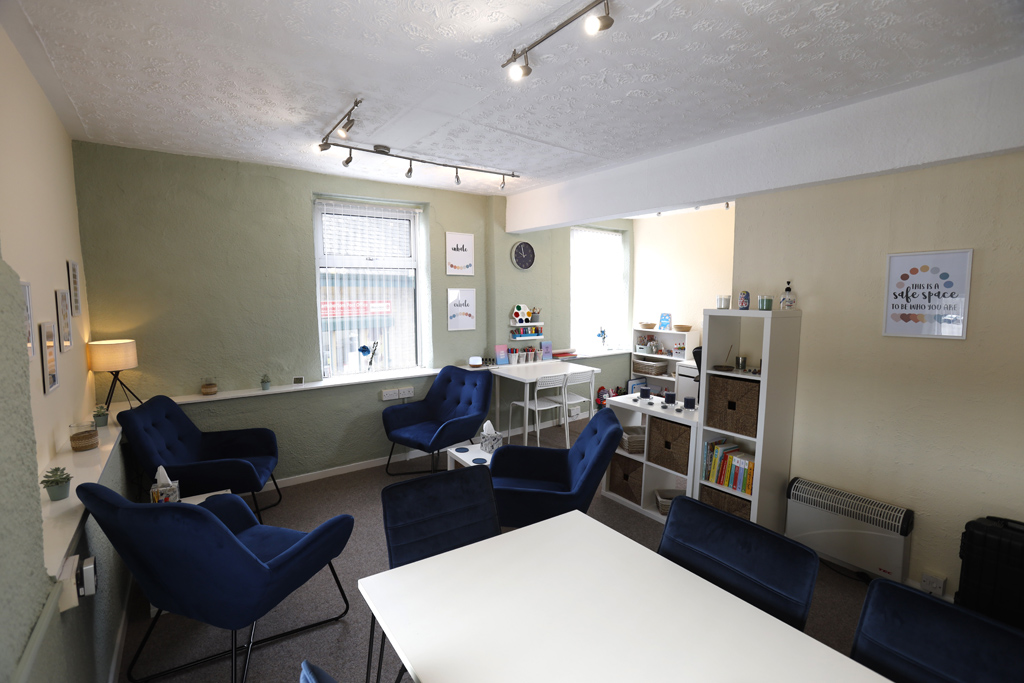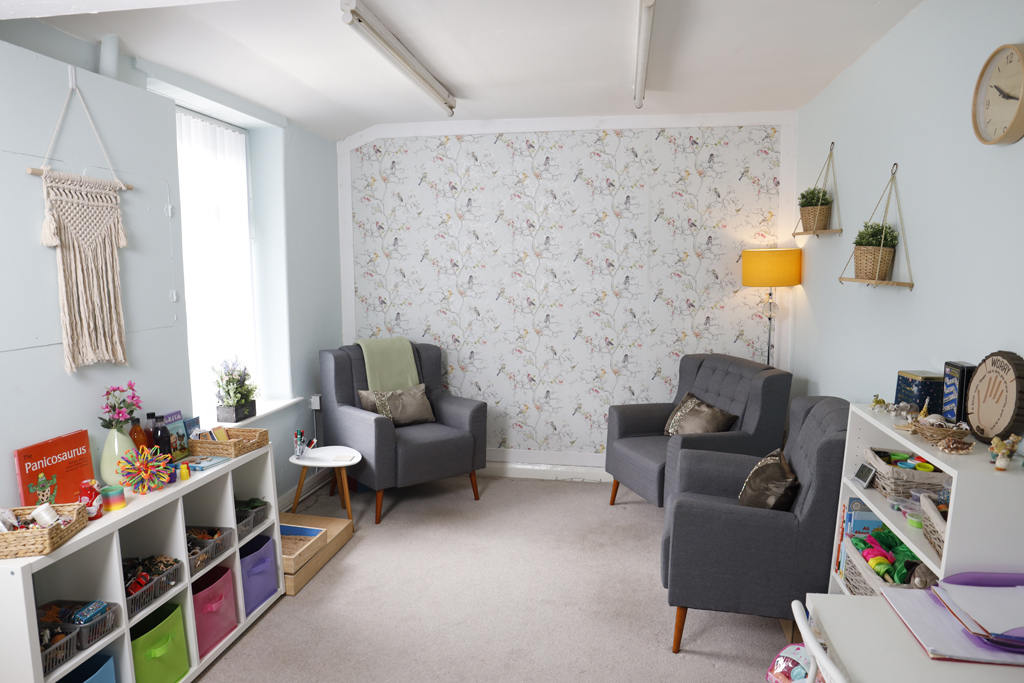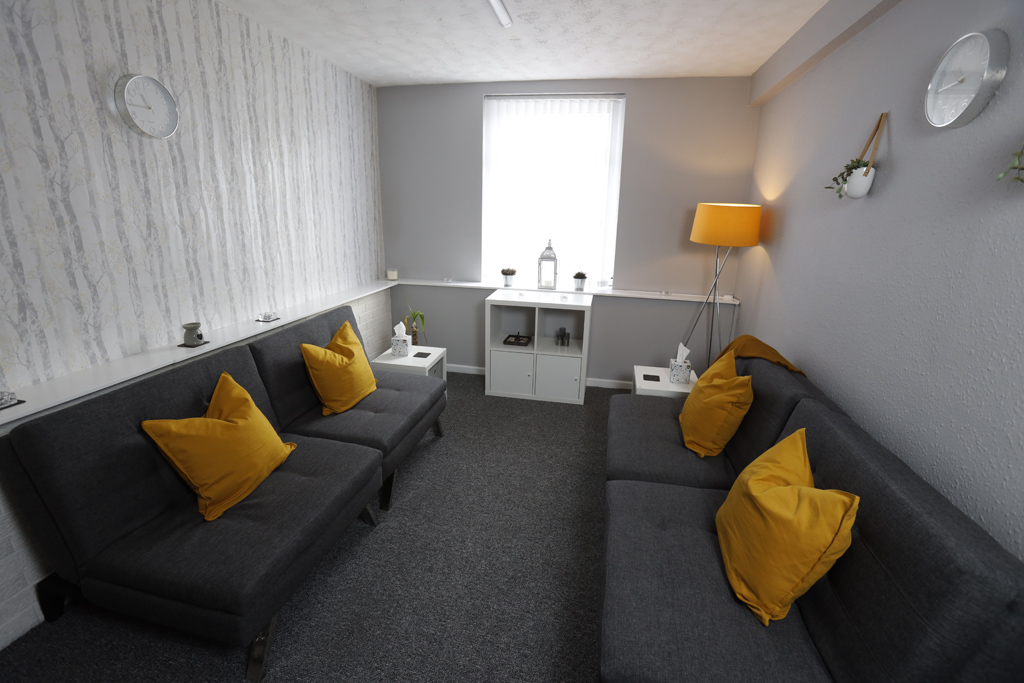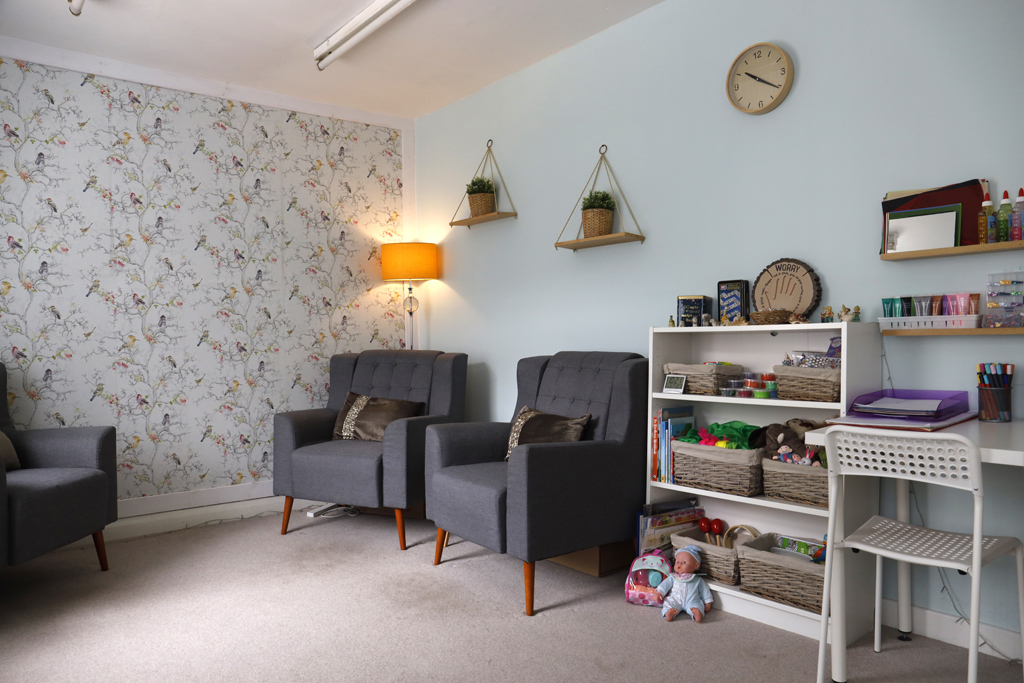Counselling
It can be difficult to navigate a fast-changing, stressful and often pressured world; this can have a profound effect on developing minds. We draw from different counselling approaches to explore the root of the issues the young person is experiencing and work on how they can makes the changes they want to achieve. This could be looking at core beliefs they have developed about themselves or their world, processing emotions that they struggle to express or establishing self-acceptance and confidence.
Counselling can help with:
Anxiety
Depression
Stress
Bereavement and loss
Identity
Intrusive thoughts
Abuse
Trauma
Self-harm
Personal relationships
Confidence and self-esteem
We support young people to identify and achieve their aims using a strengths-focused approach with the core belief that the young person has all the skills and abilities they need. The sessions are led by the young person and can involve creative and play approaches. By providing the understanding and acceptance needed they can then strengthen their roots and flourish in their unique way.
Counselling FAQs
What happens once I make a referral?
Once you make a referral, we will send you all the relevant information and let you know of any potential waiting times. These vary throughout the year and can depend on your availability. Once we have sessions available at a convenient time, we will offer you an assessment session.
How does an assessment session work?
The assessment session is a two-way process. It is an opportunity for the therapist to get to know the client and what they would like to get from the sessions, and for the client to make sure they feel comfortable with the therapist and the way they work. We will use the time to ensure we can provide the support needed. If the young person would prefer, parents/carers are welcome to come into the beginning of the assessment session. We usually ask for some time alone with the client, so they have an opportunity to talk about things of a more sensitive nature. At this stage, you can choose to book in regular sessions or have a few days to decide whether you would like to progress.
What kind of counselling do you do?
We use a variety of counselling approaches according to the need of the client. We are client-led, so will work to their aims in the way that they prefer. This includes creative and play approaches where appropriate.
How many sessions will be needed?
We suggest a minimum of 6 sessions, but we also work with clients on a long-term basis. You can decide whether you would like to put a limit on the number of sessions, and we will focus on the client’s priorities, or you can choose for sessions to be ongoing. We regularly have review sessions where we talk to the client about the progress towards their aims and how they would like to use the upcoming sessions. It can be difficult to predict a definite number as further issues can come up during the sessions.
Will I get to know what is discussed?
To be able to build a trusting relationship with clients, we contract to maintain confidentiality. This enables them to feel safe enough to share things they may not want to share elsewhere. We are clear in the assessment session about our limits regarding risk and safeguarding. Sometimes we speak to clients about whether they would like to share information with their parents/carers. We can do this by inviting you into a session, by talking to the client about how they could do this at home, or by agreeing on information they would like the therapist to share by phone or email. As we are client-led, this is entirely their decision.
Are you DBS checked?
All therapists have Enhanced DBS checks and hold professional registration with the British Association for Counselling and Psychotherapy.
What can I do to help my child?
Open communication is key, as well as understanding how they make feel from their perspective. As adults it’s easy to see things from our own point of view, but are you really listening to their experience? Don’t judge or question what they say, try to create a safe environment where they feel comfortable to talk. Provide reassurance that you are there to work alongside them to get the support they need. If you need your own support, use your friends or family to talk to. We have some resources available on our website, or find something connected to what your child has talked about if you feel you need more information. Plan together about how your child can be best supported at home and at school.






